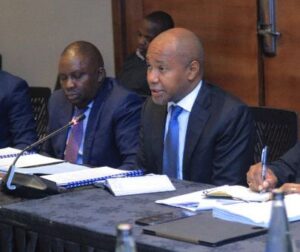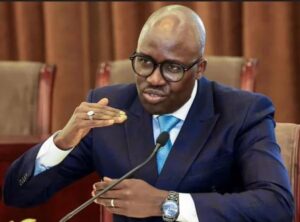Billionaire philanthropist Bill Gates has warned African leaders against reliance on foreign aid even as his foundation commits to channeling the lion’s share of a Sh26 trillion (US$200 billion) war chest into Africa over the next two decades.
This comes amid dwindling of foreign aid, especially from America’s United States Agency for International Development (USAID). which US President Donald Trump slammed brakes on, leaving many humanitarian missions in crisis.
Speaking during a press roundtable in Lagos and a keynote in Addis Ababa, Gates lamented the “very upsetting” rollback of U.S. government support, particularly under the Trump administration, which has seen cuts to programs like the President’s Emergency Plan for AIDS Relief (PEPFAR) and USAID. These, he warned, could reverse gains in HIV prevention, malaria control, and vaccination coverage.
“Donor capital is a bridge, not a scaffold,” Gates said, adding that philanthropic support should not substitute robust domestic investments. “We’re putting up the resources, but long-term success rests with local leadership financially, institutionally, and scientifically.”
ALSO READ: Govt Launches Youth Climate Jobs Drive, Sh500 Daily Pay Offered
The Gates Foundation’s pivot toward Africa, focusing on primary healthcare, food security, and disease eradication, comes amid a shrinking global aid environment. Nigeria, for instance, was singled out by Gates for underfunding its public health sector despite having the highest maternal mortality rate on the continent.
Gates noted that unless African countries increase local health budgets, professionalize procurement, and adopt AI-based data systems, current gains could be lost once foundation funds taper off in two decades. The comments draw attention to what development economists describe as a persistent paradox. Philanthropic funding can be life-saving in the short term, but it may entrench structural dependency if not paired with long-term capacity building.
One of Gates’s proposed solutions involves creating pharmaceutical manufacturing hubs across the continent under the African Continental Free Trade Area (AfCFTA). The move could slash drug costs by 60 to 80 percent, reduce reliance on imports, and boost health resilience.
According to UNCTAD, Africa loses an estimated US$88.6 billion annually to illicit financial flows, nearly double what it receives in development aid. Gates noted that if a fraction of these funds were recovered and reinvested, health systems could become self-reliant within a decade.
Gates challenged African finance ministers to treat the 20-year pledge as a countdown rather than a cushion, warning that without a long term strategy, the continent will be wallowing in the same crisis.
“This is a gift, yes, but it’s also a guillotine. What you build between now and then will determine whether your people have lasting health security or face the same preventable crises with even fewer tools.”






